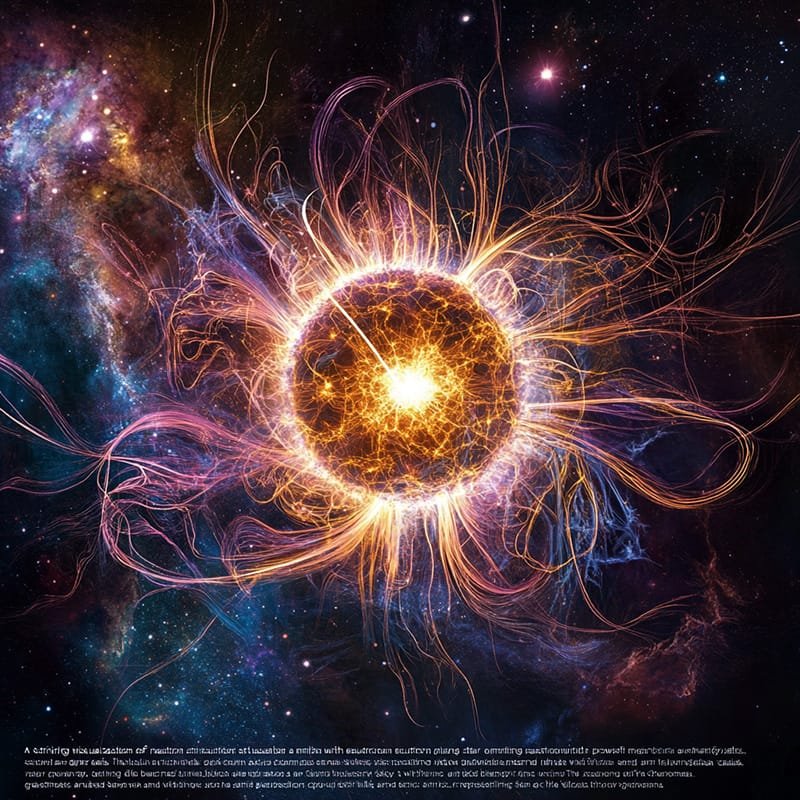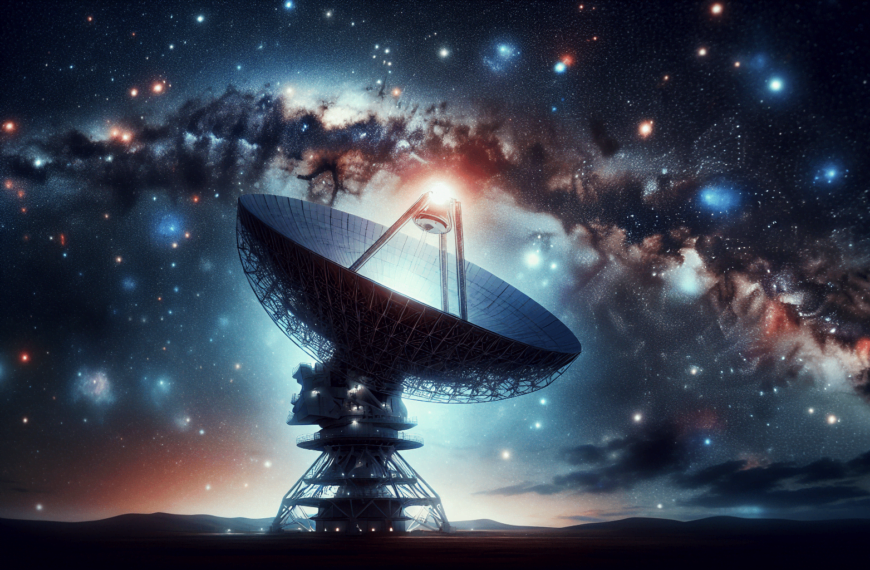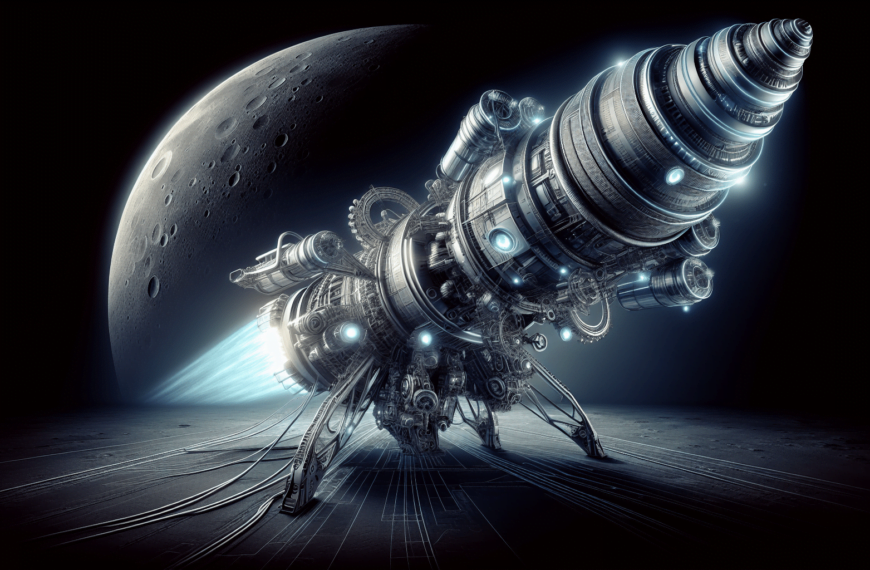Discover the mysteries of dark energy and its role in the universe’s fate. Explore new insights from DESI’s groundbreaking research!
The dark energy pushing our universe to grow bigger might not be what we believe it is
Key Takeaways
- Dark energy is a mysterious force believed to make up nearly 70% of the universe.
- Recent findings suggest that dark energy may not be a constant force as previously thought.
- The Dark Energy Spectroscopic Instrument (DESI) is providing new insights into the nature of dark energy.
- Understanding dark energy is crucial for predicting the universe’s fate.
Dark Energy
Dark energy is one of the most intriguing and mysterious components of our universe. It is a force that scientists believe is responsible for the accelerated expansion of the universe. Despite its significant role, dark energy remains largely enigmatic, as it cannot be directly observed and its origins are unknown. This mysterious force is thought to constitute nearly 70% of the universe, dwarfing the 5% made up by ordinary matter, such as stars, planets, and living beings.
 space background, hinting at the mysteries of dark energy, while the right side features colorful, bright swirling galaxies.” class=”wp-image-19065″/>
space background, hinting at the mysteries of dark energy, while the right side features colorful, bright swirling galaxies.” class=”wp-image-19065″/>The Mystery of Dark Energy
For decades, astronomers have been puzzled by the accelerating expansion of the universe. The prevailing theory suggests that a powerful, constant force—dark energy—is driving this expansion. This theory fits well with the main mathematical models that describe the universe’s behavior. However, the inability to directly observe dark energy and its unknown origins have left scientists searching for answers.
Recent Findings Challenge the Status Quo
A recent international research collaboration involving over 900 scientists has yielded surprising results. By analyzing the movement of galaxies, the researchers found that the force pushing or pulling them does not appear to be constant. This finding challenges the standard cosmological model, which assumes dark energy is a constant force.
The Role of DESI
The Dark Energy Spectroscopic Instrument (DESI) is at the forefront of this research. Located southwest of Tucson, Arizona, DESI uses a telescope to create a three-dimensional map of the universe spanning over 11 billion years. This map provides valuable information about how galaxies have clustered over time and space, offering insights into the universe’s evolution and future trajectory.The data collected by DESI suggests that dark energy may be changing or weakening over time. If true, this would significantly alter our understanding of the universe and dark energy itself. It could mean that dark energy is fundamentally different from what scientists have long believed, or that an entirely different phenomenon is at play.
Implications of Changing Dark Energy
The potential variability of dark energy has profound implications for our understanding of the universe. If dark energy is not constant, it could mean that the universe’s fate is different from what current models predict. This uncertainty has led to a mix of excitement and confusion among scientists.
Revisiting Einstein’s General Relativity
The latest findings from DESI point to a possible explanation rooted in an older theory: Einstein’s general relativity. According to this theory, the universe expanded and galaxies clustered over billions of years as predicted. The new data may suggest that dark energy’s role in this process is more complex than previously thought.
Is Dark Energy Dead?
Despite these intriguing findings, the question remains: is dark energy dead? The answer is not yet clear. Astronomers emphasize the need for more data to challenge a theory that has long seemed to fit well with observations. Future observations from other telescopes and further analyses of the new data will be crucial in determining whether the current view of dark energy stands or falls.
The Significance of the Findings
The significance of these findings is tantalizing but not yet definitive. As Robert Caldwell, a physicist at Dartmouth College, notes, the results are not yet “gold-plated measurements.” More research is needed to confirm or refute the new insights into dark energy.

Why Dark Energy Matters
Understanding dark energy is crucial because it is the largest component of the universe. Its behavior determines the universe’s fate. If dark energy is constant, the universe will continue to expand, becoming colder and emptier over time. However, if dark energy is growing in strength, the universe could expand so rapidly that it destroys itself in a scenario known as the Big Rip.
The Big Rip Scenario
The Big Rip is a hypothetical scenario in which the universe’s expansion accelerates to the point where it tears itself apart. While this possibility is not immediate, it underscores the importance of understanding dark energy’s true nature.
Final Thoughts
The recent findings from the DESI collaboration have opened new avenues for understanding dark energy. While the results are not yet conclusive, they challenge long-held assumptions and suggest that dark energy may not be what it seems. As scientists continue to gather and analyze data, the true nature of dark energy may become clearer, offering new insights into the universe’s past, present, and future.Understanding dark energy is not just a scientific endeavor; it is a quest to comprehend the fundamental forces shaping our universe. As research progresses, we may uncover answers that redefine our understanding of the cosmos and our place within it.

 galaxy, powered by dark energy, with numerous stars and planets set against a dark background, featuring a prominent bright spiral in the center.” class=”wp-image-19067″/>
galaxy, powered by dark energy, with numerous stars and planets set against a dark background, featuring a prominent bright spiral in the center.” class=”wp-image-19067″/> Milky Way arches above, hinting at the mysteries of dark energy, all set against a serene desert landscape.” class=”wp-image-19066″/>
Milky Way arches above, hinting at the mysteries of dark energy, all set against a serene desert landscape.” class=”wp-image-19066″/> galaxies: the left side shows a serene view with spiral galaxies against a dark space background, hinting at the mysteries of dark energy, while the right side features colorful, bright swirling galaxies.” class=”wp-image-19065″/>
galaxies: the left side shows a serene view with spiral galaxies against a dark space background, hinting at the mysteries of dark energy, while the right side features colorful, bright swirling galaxies.” class=”wp-image-19065″/>


























